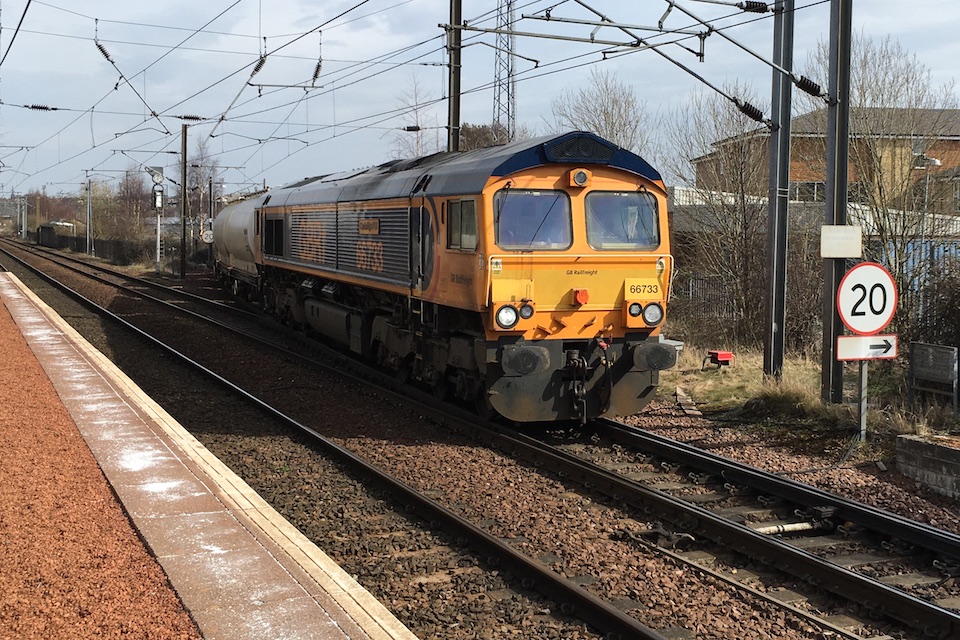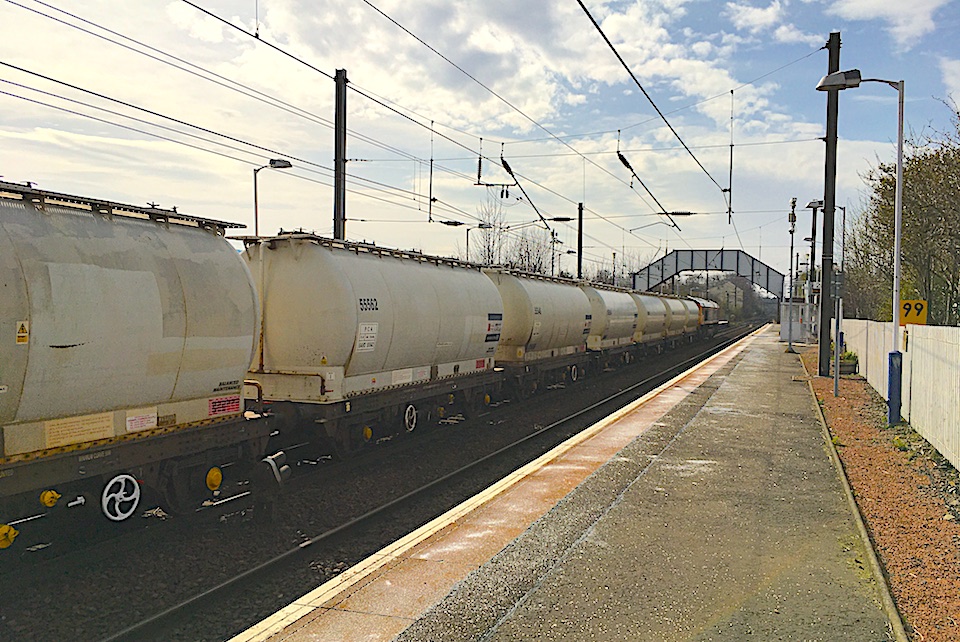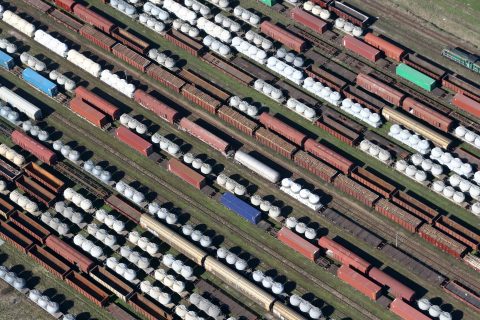UK Freight now priority by default

It is a vital resource in the fight against coronavirus. Now, rail freight is running almost unhindered on the UK network. Metro services like the London Underground may still be running with significant loadings, but elsewhere it is a different picture. Freight is top priority.
The UK rail network has become as quiet as the rest of the transport infrastructure. The significantly reduced passenger timetable has largely been superseded by the national lockdown, confining much of the UK population indoors until Easter at least.
Debate in parliament
There has been extensive debate in the UK regarding observance and enforcement of the lockdown – particularly at Prime Minister’s Questions today in Westminster. However, as parliament has agreed to recess today, that debate will be a moot point for now. MPs will therefore be making their way back to their constituencies for the last time today.
Some will be heading for the north east of England, and some will even pass the industrial and former coalmining towns of that area on their journeys. Among them, the seaside communities of Blyth and North Blyth.
Dodging expresses
The North Blyth bauxite terminal is not the most picturesque attraction on the sunny but rugged Northumberland coast. However, its existence has kept open the railway line through the industrial town, and that may soon contribute to the resumption of passenger services between Blyth and nearby Newcastle and beyond.
Fitting in those passenger services will not be easy. However, they will be more easily achieved than the less-frequent, but much more challenging GB Railfreight operated tanker trains that carry thousands of tonnes of alumina between there and Fort William in north west Scotland.

Vote of thanks from GBRf MD
“Our services are playing a vital role in ensuring the continuation of supplies”, said John Smith, GBRf managing director. “These flows are ensuring that warehouses remain stocked, and supermarkets and other essential retailers remain supplied. Services are also ensuring that the UK can keep the lights on. We are delivering vital supplies of biomass which are transported across the country by rail to Drax Power Station in Yorkshire, which supplies six percent of the UK’s electricity needs. I would like to play tribute to the GBRf team and those working across the rail freight sector for the role that they are playing and will continue to play as the UK responds to the pandemic”.
When timetable planners were tasked with devising paths for the daily North Blyth to Fort William tanker trains, they had to cut across the busy mixed-use East Coast Main Line (ECML), dodging between high-speed expresses connecting London and Edinburgh, cross-country services between north east Scotland and south west England, and passenger services across the very busy central belt of Scotland.
Unprecedented
That now is not the case. Earlier this week, the morning train arrived at the west of Edinburgh an unprecedented 112 minutes early. That represents around half of its scheduled journey time for the first 120 miles (200 km) of its routing, along the ECML.
A quick scan of signalling diagrams show why the crew of this train had an unexpectedly lengthy tick over. The Edinburgh boards showed almost no movements whatsoever. The normally congested platforms of Waverley station were empty of passengers and trains.
Infrastructure security
Other services are finding signals green all the way. Intermodal formations, often carrying vital supplies, are no longer waiting at junctions for passenger services that have been ceased.
Now that Britain is in lockdown (albeit a lockdown with some outdoor visiting rights) there is even less demand for long-distance passenger transport. There may even soon be weakening demand for bulk freight – where a clear case of national infrastructure security cannot be made.

Priority by default
However, with passenger services becoming a memory, the path is wide open for the rail freight sector to make an even greater contribution to helping Britain weather the coronavirus storm.
The UK government has said that there would be some priority for freight services, to help move supplies around the country as quickly and as efficiently as possible. It seems that, in many instances, that priority has become a fact. In practice, freight is moving about the UK like never before, and contributing a robust and significant backbone to the UK supply change.
You just read one of our premium articles free of charge
Want full access? Take advantage of our exclusive offer





